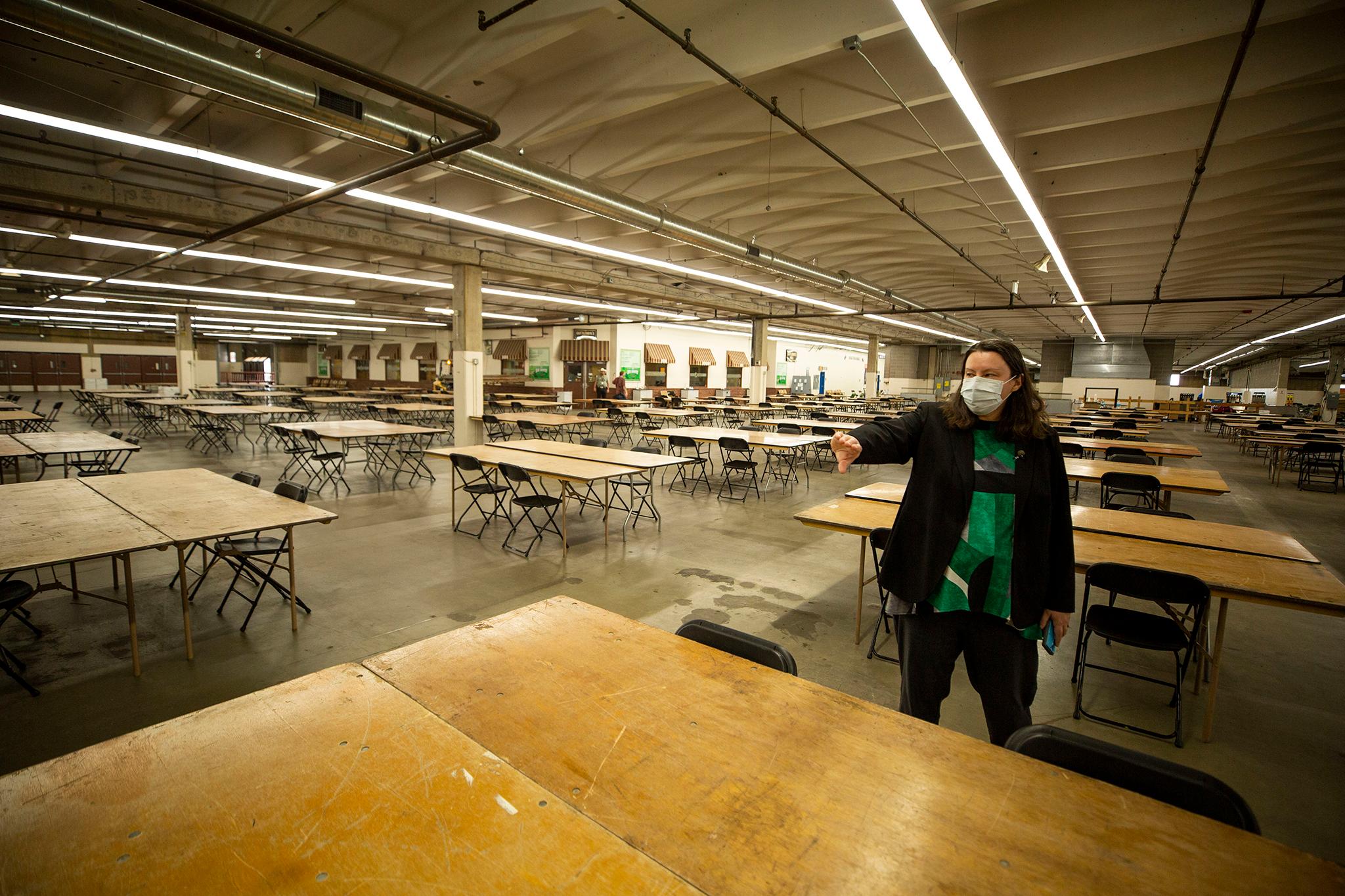Updates with City Council approving Colorado Coalition for the Homeless and Salvation Army contracts.
Homelessness was increasing in Denver even before the pandemic both added to the number of people on the streets and forced shelters to decrease their beds.
"We have seen a rise in unsheltered before COVID but it has been much more dramatic since COVID," Britta Fisher, who heads the city housing department, said Wednesday as she briefed Denver City Council members on efforts to support the unhoused at a time when people are being encouraged to stay home to slow the spread of the coronavirus.
"I don't see how we can get through the coming months and years without addressing shelter capacity," Fisher added. "Ultimately we need more beds in the system."
The need was created in part because shelters decreased their capacity to minimize crowding after the pandemic arrived in Denver in March. Fisher told members of the council's Safety, Housing, Education and Homelessness Committee that the 2,134 shelter beds Denver had decreased by 56 percent to allow for social distancing.
"That was a tremendous blow," Fisher said.
The city and its service-provider partners were able to recoup by opening temporary shelters at the National Western Complex and the nearby Coliseum as well as by securing more than 800 hotel rooms for people experiencing homelessness who were affected by the coronavirus. This month, women and transgender individuals who had been staying at the Coliseum were transferred to hotel rooms and to existing shelters, and men were moved from National Western to the Coliseum. The current bed count is 2,150, Fisher said Wednesday, meaning the city has returned to its pre-COVID capacity.
Fisher estimated that 3,600 people are homeless in Denver, or about 0.5 percent of the city's total population. According to the latest report from the Metro Denver Homelessness Initiative, 4,171 people were experiencing homelessness, 996 of them unsheltered, in Denver during the point-in-time survey, conducted in January. That was up from a total of 3,943, including 554 who were unsheltered, in the 2019 point-in-time survey. The advocacy organization Denver Homeless Out Loud conducted its own survey of people living on the streets in July and estimated that tents and vehicles were home to 1,328 people in 30 encampments in Five Points, Capitol Hill and other parts of Denver.
The pandemic has slowed the economy, leading to job losses that have left people unable to afford housing. A statewide eviction moratorium that ended in June did not relieve tenants of the obligation to pay rent. Some people have been helped by rent relief programs, such as one offered by the city of Denver. Others have left their homes as they watched their debt to landlords pile up.
So far, Colorado has seen fewer evictions since the moratorium ended than for the same period last year. But Fisher and others fear a wave of evictions is coming soon.
"We feel and know that it is likely to be coming," Fisher told council members.
Providing rent relief, creating more housing within reach of people on low and moderate incomes, and increasing shelter beds all require more resources, Fisher said. She noted that Councilwoman-at-large Robin Kniech has proposed asking Denver voters to raise the sales tax by 0.25 percent, or 2.5 cents on every $10 purchased, to create a dedicated city fund to address homelessness. Sales taxes in Denver are currently 8.31 percent and would rise to 8.56 percent if Kniech's proposal is adopted. Kniech has said federal dollars also are needed, a point Fisher made on Wednesday.
"There's not enough (city) resources that you could house everybody right now," Fisher said. "There's no way that the federal government can't be a part of this solution."
Just under half the $56 million the city has so far spent responding to COVID-19 has gone to shelter services. Most of the money has come from federal emergency pandemic relief funds.
Following the briefing on COVID-19 and homelessness, the safety and housing committee forwarded to the full council amendments to extend pandemic shelter services through the end of the year. During an Aug. 24 meeting, the City Council approved a $16.9 million contract with the Colorado Coalition for the Homeless covers the leasing of hotels and services such as counseling at those hotels, and a $7.2 million contract with the Salvation Army that covers running a shelter and providing meals at hotels.













